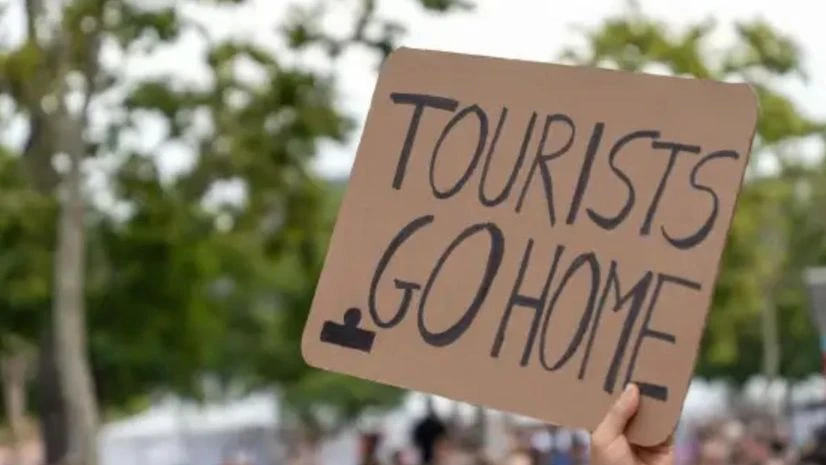Anti-tourism protests have been gaining momentum across Europe this summer, with significant demonstrations occurring in the Netherlands, Greece, and, notably, Spain.
Protests in Spain
In early July, protesters in Barcelona marched through popular tourist areas, spraying unsuspecting visitors with water pistols while chanting, "Tourists go home." Recently, thousands of people took to the streets of Mallorca, with organisers claiming that the island’s tourism model "impoverishes workers while enriching only a few."
The root of the unrest
Central to these protests is the escalating issue of rising rents and house prices, making homeownership increasingly unattainable for residents. Carlos Ramirez, a school teacher in Barcelona, has been saving for his first house for years, earning a "decent" state salary. However, the skyrocketing prices in the Catalan capital have left him, like many others, fearing displacement.
Ramirez, 26, blames mass tourism for the increasing costs. "It’s becoming more and more difficult for locals, especially younger people, to have their own place," he told CNN.
"As the years have gone by, more and more tourists have come," he added.
Over the past decade, rents in Barcelona have increased by 68 per cent, according to the city's mayor, Jaume Collboni—a trend mirrored across other European cities.
More From This Section
A broader issue
The protests reflect a deeper issue of unsustainable tourism management. Antje Martins, an expert in sustainable tourism from the University of Queensland, notes that these protests indicate broader dissatisfaction with how tourism is managed. Residents, often paid lower wages and some working in the tourism industry itself, feel they do not benefit from the influx of tourists.
"When I see those clashes where residents are revolting against tourism, it reflects their dissatisfaction because they don’t get any benefits from the tourism they see," Martins was quoted as saying by CNN.
Government response and measures
In response to these issues, some European cities are taking action. Venice implemented a temporary entrance fee to regulate tourist numbers, which brought in more revenue than expected. Similarly, Barcelona's mayor announced plans to raise the city’s tourist tax for some cruise passengers and end licences for around 10,000 apartments currently approved for short-term rentals.
De-marketing campaigns
Some cities have resorted to "de-marketing campaigns" to discourage certain types of tourists. Amsterdam’s 2023 "Stay Away" campaign targeted male visitors aged 18 to 35, warning them about the consequences of anti-social behaviour. However, such measures can have unintended consequences, such as increased prices and further gentrification.
The ongoing protests and measures highlight the need for a balance in tourism management. "It’s about seeing the money that is made by tourists, or with tourists, being invested in the place and in jobs so people can afford to live," said Martins. Until such a balance is achieved, the protests are likely to continue.

)
